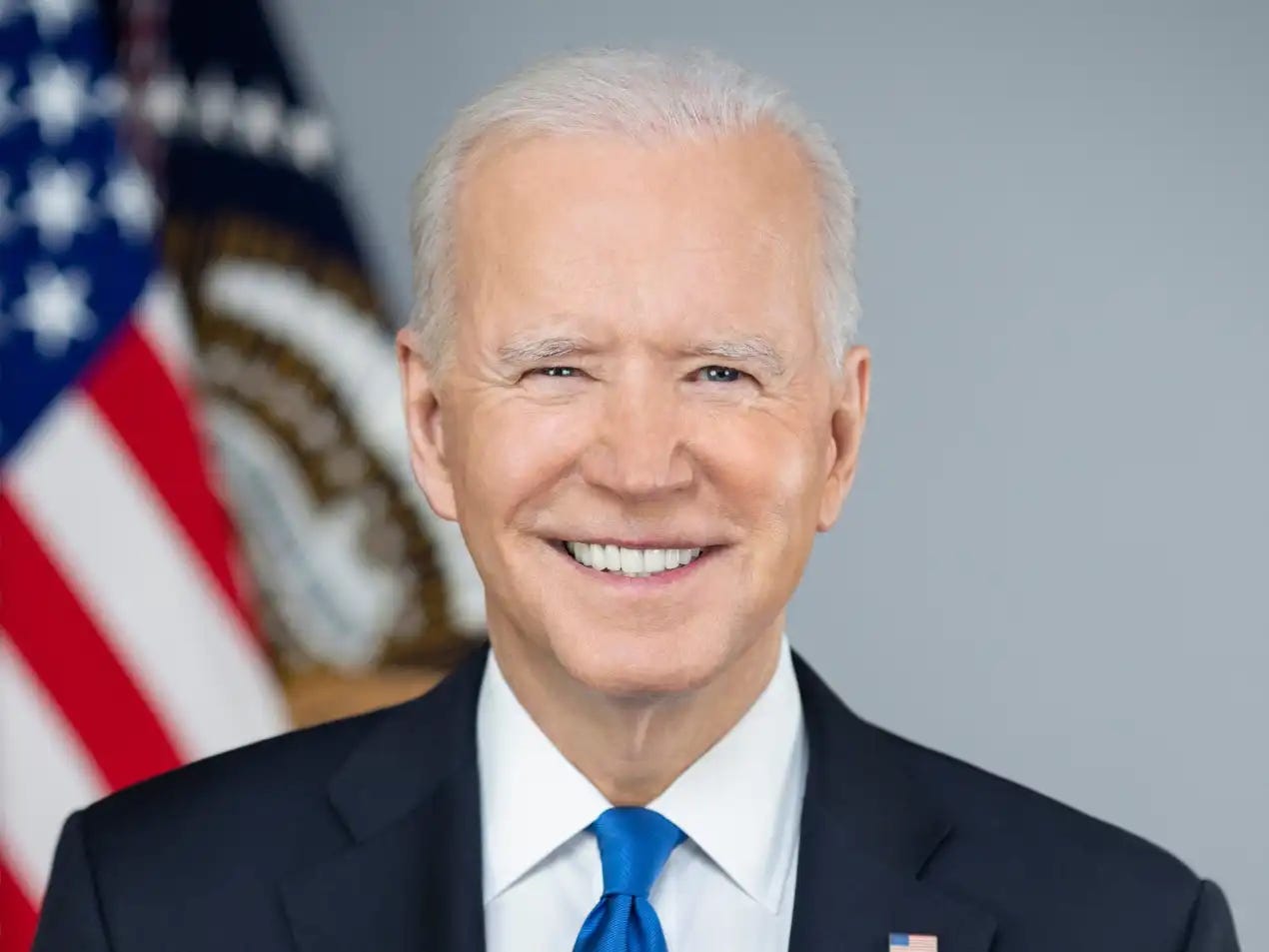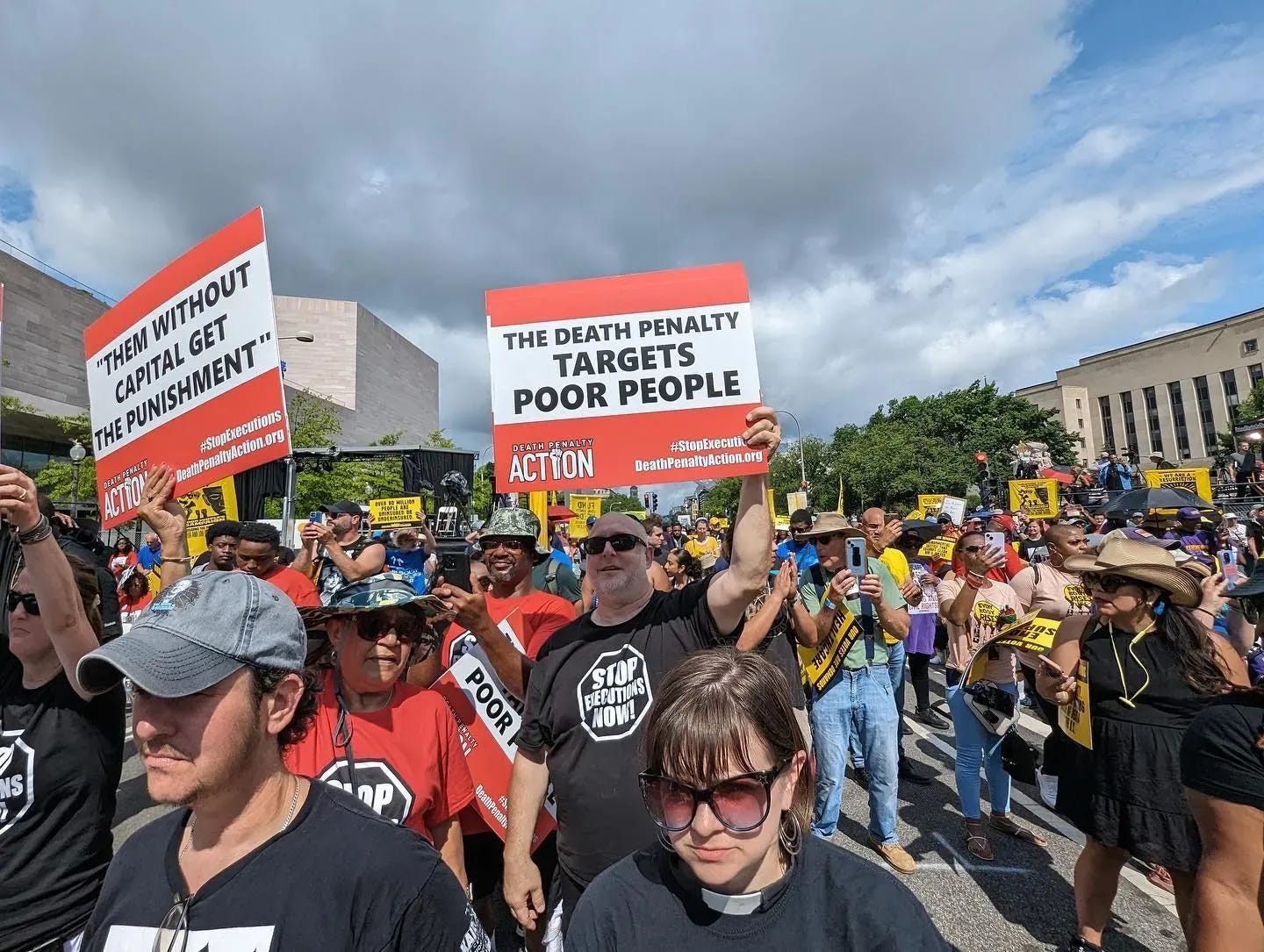Biden Praised for Commuting Sentences of Nearly All Inmates On Federal Death Row
The move comes less than a month before the inauguration of President-elect Donald J. Trump, who has vowed to expand the federal death penalty.
By Gary Gately
Opponents of capital punishment praised President Joe Biden’s decision Monday to commute the sentences of 37 of the 40 inmates on federal death row less than a month before the inauguration of President-elect Donald J. Trump, who has vowed to expand the federal death penalty.
Biden’s move came after intense pressure for him to empty federal death row from a broad coalition of more than 350 organizations, scores of them Catholic, as well as from Pope Francis and U.S. bishops.
The 37 men, all convicted of murder, will serve life imprisonment without parole, and their death sentences cannot be reinstated.
But three inmates convicted of mass killings will remain on death row.
“Make no mistake: I condemn these murderers, grieve for the victims of their despicable acts, and ache for all the families who have suffered unimaginable and irreparable loss,” Biden said in a statement released by the White House.
But, he added: “I am more convinced than ever that we must stop the use of the death penalty at the federal level. In good conscience, I cannot stand back and let a new administration resume executions that I halted.”
Biden said the commutations are consistent with his administration’s moratorium on federal executions “in cases other than terrorism and hate-motivated mass murder.”
Archbishop Timothy P. Broglio, the president of the U.S. Conference of Catholic Bishops (USCCB), applauded Biden’s decision.
”These commutations are a significant step in advancing the cause of human dignity and respect for human life from womb to tomb in our nation,” Broglio said in a statement. “As we continue to proclaim the Gospel in a broken world, this act of mercy is a step closer to building a culture of life.”
He said U.S. bishops “encourage all lawmakers to continue to work towards the total abolition of the death penalty, and to redirect the energy and resources that currently go towards executions to provide compassionate and professional assistance to the families of victims.”
In his December 8 Angelus prayer, Pope Francis, who will meet with Biden at the Vatican on January 10, appealed for prayers that the death row inmates in the U.S. be spared execution.
“Today, I feel compelled to ask all of you to pray for the inmates on death row in the United States,” the 88-year-old Jesuit pontiff said. “Let us pray that their sentences may be commuted or changed. Let us think of these brothers and sisters of ours and ask the Lord for the grace to save them from death.”
The following day, the USCCB called on all U.S. Catholics to urge Biden to commute the sentences of the 40 men on federal death row to life imprisonment.
“As we continue to proclaim the Gospel in a broken world, this act of mercy is a step closer to building a culture of life.” — Archbishop Timothy P. Broglio, the president of the U.S. Conference of Catholic Bishops
On Monday, Krisanne Vaillancourt Murphy, executive director of Catholic Mobilizing Network, which seeks to abolish the death penalty, said Biden’s decision “advances the cause of human dignity and underscores the sacred value of every human life.”
In a statement, Vaillancourt said: “Catholic Mobilizing Network believes in the God-given dignity of every person, no matter the harm one has caused or suffered…. The system of capital punishment anywhere leaves in its wake ripples of suffering in families, in communities, and in our social systems. Indeed, the death penalty’s very existence epitomizes a throwaway culture.”
She said Biden’s “unparalleled action should mark a turning point in our nation’s justice system and serve as a model for leaders at the state level to follow suit.”
More than 2,200 inmates are on death row in states, according to the Death Penalty Information Center. While 23 states and Washington, D.C., have abolished the death penalty, 27 others retain it, but executions have been put on hold in five of those states.
Presidents can commute only federal death sentences, not state ones. In most states, governors can commute death sentences, but some states require governors to receive commutation recommendations from advisory panels, and in four states, only clemency boards can commute death sentences.
Critics point to extensive research that shows the death penalty does not deter crime and is applied disproportionately and unfairly to Black people and people with mental illnesses or intellectual disabilities and those convicted based on flawed forensic evidence.
The death penalty also carries the inherent risk of executing an innocent person: Since 1973, at least 200 people who had been wrongly convicted and sentenced to death in the U.S. have been exonerated, the Death Penalty Information Center says.
The White House released statements praising Biden’s move from death penalty opponents, including religious leaders, civil rights groups, friends and family members of those killed by men now on death row, and criminal justice reform advocates.
Donnie Oliverio, a retired Columbus, Ohio, police officer whose partner was killed in 2005 by one of the men whose death sentence Biden commuted, said: “Putting to death the person who killed my police partner and best friend would have brought me no peace. The president has done what is right here, and what is consistent with the faith he and I share.”
Other death penalty opponents also applauded Biden’s move.
Bryan Stevenson, founder and executive director of the Equal Justice Initiative, said in a statement: “We do not need to kill people to show that killing is wrong in this country. The death penalty is a torturous, flawed, expensive, and error-filled practice that must be abolished. I commend President Biden for this historic act and hope that governors and state executives follow the president’s lead at a time when many of our courts are abandoning their role to ensure fairness and reliability in criminal cases.”
And Anthony D. Romero, executive director of the American Civil Liberties Union, praised Biden’s “historic and courageous step in addressing the failed death penalty in the United States, bringing us much closer to outlawing the barbaric practice once again.“
In a statement, Romero called the commutations “the most consequential step of any president in our history to address the immoral and unconstitutional harms of capital punishment.”
“President Biden has reaffirmed the power of redemption over retribution and reminds us that state-sanctioned killing does not make us safer,” Romero added.
Catholic nun Sister Helen Prejean — a prominent anti-death penalty advocate and the author of “Dead Men Walking,” about her role as a spiritual advisor to a man on death row for killing two teenagers in Louisiana — posted on X (formerly Twitter): “President Biden has commuted death sentences for 37 of the 40 men on federal death row. They will now serve life sentences and cannot be executed. This is a milestone in the fight to shut down the death penalty — thank you!”

But not everybody agreed with Biden’s decision.
Representative Tom Cotton, an Arkansas Republican, posted on X: “Joe Biden is using his last days in office to spare the worst monsters in America. These killers were sentenced to death by a jury of their peers and then had a lengthy and burdensome appeals process.”
Biden did not commute the federal death sentences of Dylann Roof, who killed nine Black members of a Charleston, South Carolina, Church in a 2015 racist attack; Robert Bowers, who killed 11 congregants at Pittsburgh’s Tree of Life Synagogue in a 2018 hate crime; or Dzhokhar Tsarnaev for his role in the 2013 Boston Marathon bombing that killed three people and injured more than 260 others.
When running for president in 2020, Biden had pledged to introduce legislation to eliminate the death penalty at the federal level and “incentivize states to follow the federal government’s example.” He wrote on social media at the time: “Because we can’t ensure that we get these cases right every time, we must eliminate the death penalty.”
Biden, however, did not make any such promises during his 2024 presidential campaign before it ended in July. And for much of his political career, he supported capital punishment and expanded it to other crimes in a 1994 crime bill that he wrote as a senator.
In 2021, Biden directed Attorney General Merrick B. Garland to impose a moratorium on federal executions while the Justice Department reviewed death penalty policies and procedures.
Last week, Biden commuted the sentences of nearly 1,500 people who had been placed on home detention during the coronavirus pandemic and pardoned 39 Americans convicted of nonviolent crimes. He had faced criticism after pardoning his son Hunter Biden on December 1 on gun and tax-evasion charges. The president had repeatedly insisted he would not do so.
For his part, Trump has repeatedly vowed to expand the death penalty. During his 2024 campaign, he suggested that drug dealers, human traffickers and child sex abusers should be executed.
Trump’s administration carried out 13 federal executions during his last six months in office, including the first woman executed in the U.S. in nearly 70 years. The executions under the Trump administration marked the first federal executions in 17 years and the most under one president in more than 120 years.
Death penalty foes say they’re heartened that the number of U.S. executions has declined dramatically in recent years, from 85 in 2000 to 25 this year, as support for capital punishment has hit a five-decade low, according to polls.
Pope Francis revised the Catechism of the Catholic Church in 2018 to state that the death penalty is “inadmissible because it is an attack on the inviolability and dignity of the person.” The Catholic stance against the death penalty applies “even after the commission of very serious crimes,” the Catechism states.
This revision updated a 1997 Catechism version by Pope John Paul II that permitted the death penalty in rare cases where it was deemed “the only possible way of effectively defending human lives against the unjust aggressor.”




